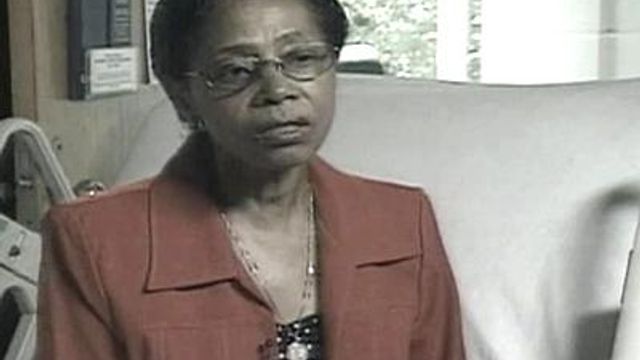Health Team
Duke Docs Find Women Less Likely to Get Heart-Saving Device
Research looking at the records of more than 200,000 Medicare patients over seven years found men were two to three times more likely to receive an implantable defibrillator.
Posted — UpdatedDURHAM, N.C. — Despite all the efforts of recent decades to equalize men's and women's access to health care, a new study done at Duke University Medical Center found that men and women are treated differently when it comes to getting a potentially life-saving device for the heart.
Mary Lee Farly of Warrenton has a history of heart problems, so she has an implantable cardioverter defibrillator, known as an ICD, in case her heart begins to beat irregularly.
It can prevent sudden death for patients like her, but the Duke study shows men were two to three times more likely than women to be given an ICD.
“It shouldn't be like that. Women go through the same thing as men go through,” Farly said.
“That's not a small, subtle difference. That's a large effect, and that was surprising, Lesley Curtis, Ph.D., of Duke’s School of Medicine.
Curtis and his colleagues at Duke reviewed seven years of data on more than 200,000 Medicare patients.
They found white men were the most likely to receive ICDs. Black women were the least likely, even though both groups had the same risk factors for sudden cardiac death.
The Journal of the American Medical Association published their findings.
“Clearly we need to do a lot more work to understand why this gap exits and then do even more work to close the gap,” Curtis said. The researchers said the findings are especially surprising because Medicare recently expanded eligibility criteria for receiving an ICD.
Dr. Adrian Hernandez, Duke cardiologist and a co-author of the study, said doctors may tend to focus more on men when it comes to heart problems, so women need to be advocates for their own health.
“We need to do a better job to make sure that women understand heart disease does occur in women. It's important,” Hernandez said.
Farly said the study makes her glad she has her ICD.
“If a black woman's at the end and white men is at the top, yeah, I'm lucky,” Farly said. The study authors say she not have to be lucky.
• Credits
Copyright 2024 by Capitol Broadcasting Company. All rights reserved. This material may not be published, broadcast, rewritten or redistributed.





